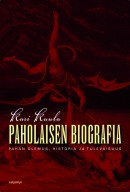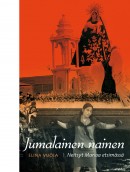Tag: theology
Kari Kuula: Paholaisen biografia [The biography of the Devil]
13 May 2011 | Mini reviews, Reviews
 Paholaisen biografia. Pahan olemus, historia ja tulevaisuus
Paholaisen biografia. Pahan olemus, historia ja tulevaisuus
[The biography of the Devil. The essence of evil, history and future]
Helsinki, Kirjapaja, 2010. 381 p.
ISBN 978-951-607-837-6
€ 38, hardback
This book is a chronological study of the Devil, seen through the history of ideas and cultural history. As the Devil is mainly a concept in Christian theology, the most profound studies of his essence have been carried out by experts of this field. The book also studies the Devil’s ‘disciples’, demons, and beliefs related to them. The main theme of the work consists of the history of diabology and demonology, from the Old Testament to contemporary theology. Another central theme is the theological dilemma of why God allows evil and suffering. In the cultural history section the author concentrates on the practical implications of belief in the Devil in different ages as well as parallel phenomena such as possession and belief in witchcraft. Folk tales about the Devil and descriptions of his putative looks as well as some classic works of fiction featuring the Devil are discussed. Kari Kuula is doctor of theology and priest who has published several non-fiction books on the Bible and Christianity.
Elina Vuola: Jumalainen nainen. Neitsyt Mariaa etsimässä [The divine woman. In search of the Virgin Mary]
1 April 2011 | Mini reviews, Reviews
 Jumalainen nainen. Neitsyt Mariaa etsimässä
Jumalainen nainen. Neitsyt Mariaa etsimässä
[The divine woman. In search of the Virgin Mary]
Helsinki: Otava, 2010. 220 p., ill.
ISBN 978-951-1-22364-1
€ 34, hardback
This book is about the Virgin Mary and in particular her role in women’s religious experience. Theologian Elina Vuola considers that the doctrines concerning the Virgin Mary have quite a lot in common, as the principal dogmas were formulated in the early centuries of Christianity. As a partial explanation of the difference between the Mary of the Church and the Mary of popular faith, the author adduces the fact that with few exceptions women in Finland did not begin to receive theological training until the second half of the twentieth century. The central question in the book is whether or not Mary is the crowned queen of a patriarchal religious faith that is hostile to women, a harmful role model. Vuola avows herself to be a representative of the trend in women’s religious studies that takes a more positive and multifaceted view of Mary. In the section devoted to the Mary of Karelian folk religion it becomes evident that in Finland and its surrounding regions there are interpretations that are surprisingly similar to those found in Latin America.
Translated by David McDuff
